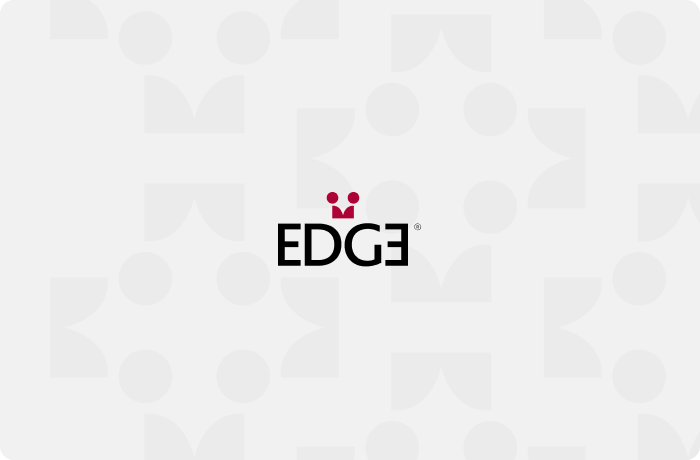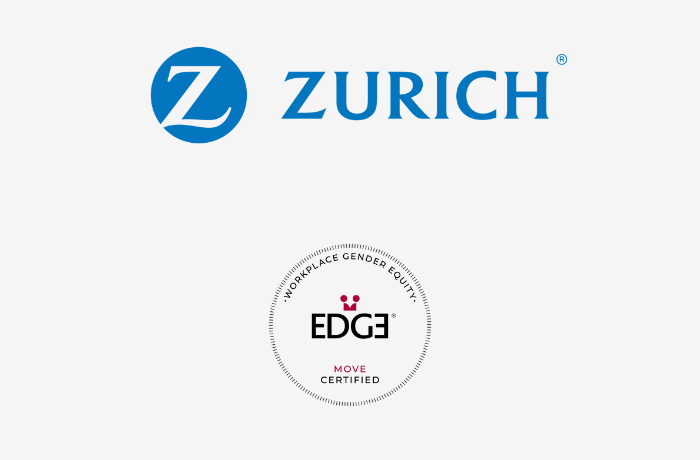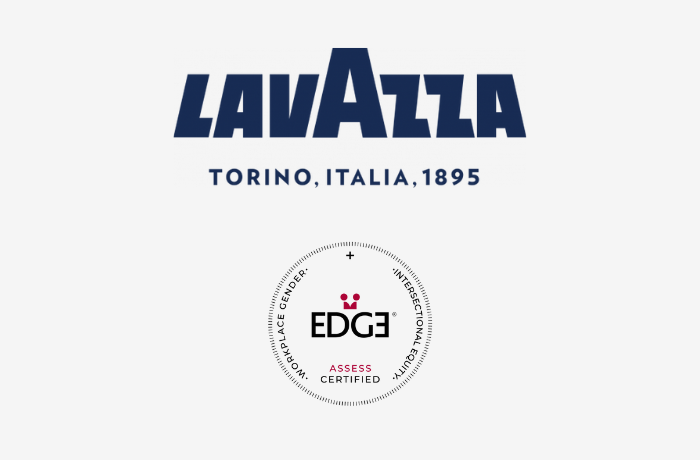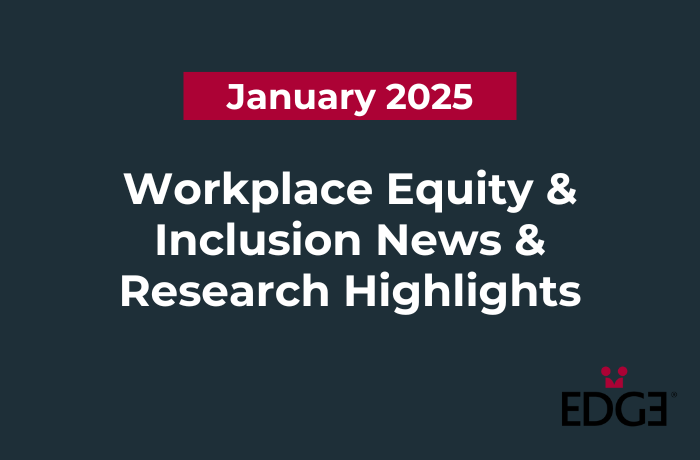Transcript :
IGC Secretariat – Seraina Eldada:
Hello, this is Seraina Eldada from the International Gender Champions Secretariat in Geneva. Today I’m delighted to speak to Aniela Unguresan, co founder of the EDGE certified foundation. This Swiss based organization assesses, accelerates and certifies gender and intersectional equality in the workplace, and was launched at the World Economic Forum in 2011. The EDGE certified foundation commitment is to contribute to more inclusive, equitable and prosperous societies powered by gender and intersectional equity. Aniela strongly believes that the time has come for us to move from vision to action. The EDGE Certification Process is intended to identify gaps and limitations, while providing a roadmap to achieve more inclusive workplaces. Welcome, Aniela, and thank you very much for taking the time to record this podcast.
Aniela Unguresan:
Thank you very much for this invitation. I’m delighted to be here.
IGC Secretariat – Seraina Eldada:
Fantastic. So this year, the IGC network welcomes the Gender-based Violence Pledge standing for zero tolerance of gender based violence and sexist attitudes and behaviors. What linkages do you see between this pledge and optimizing diverse, equitable and inclusive workplaces?
Aniela Unguresan:
Thank you, Seraina, for this question. I think that the linkage is a very direct one. And here is why: researchers have found that the sort of organization that is particularly prone to gender-based violence and sexist attitudes and behavior is an organization which is male dominated, super hierarchical, and forgiving when it comes to doubtful behavior. So having more women in the workplace, so working to create more diversity in the workplace, in the workforce, but also in leadership, brings first of all different perspectives to the table, and strongly invites the historically over-represented group in the workplace – men, most often – to take into consideration these different perspectives. Also, a highly hierarchical male dominated organization is prone to less scrutiny and action, as sometimes high status provides cover for actions. So, victims and bystanders might be worried of what will happen to them if they speak up, and ultimately, time and again, those who are the instigators, and the perpetrators of such attitudes can get away with it because there is a low probability of both discovery and punishment. So for all these reasons, a focus to foster a diverse, equitable, and inclusive workplace is central to create a respectful work environment where everybody feels safe. If male dominated structures uphold a system of sexual harassment, such structures need to be changed, and women need to be promoted in the organizations, and need to be promoted, and be present, to the top levels in the organization. And even so, more women in management alone won’t eliminate sexual harassment and gender-based violence, and plenty of organizations with women in top leadership positions still grapple with these issues. But better gender balance can create more equity in how the power and the authority is distributed amongst men and women inside the organization and how they are being exercised.
IGC Secretariat – Seraina Eldada:
Thank you, Aniela. And as you just described, we see that inequalities in the workplace do still disproportionately affect women from representation to participation and belonging. And women, especially women of color remain significantly underrepresented in senior leadership. That being said, a majority of women also continue to experience day to day bias and microaggressions in their workplaces. And it doesn’t have to be this way. And can you please share some of the ways that you’ve taken personal action as an individual leader to address bias and microaggressions and any advice you have for fellow Champions?
IGC Secretariat – Seraina Eldada:
So coming back to something that you have mentioned Seraina, I couldn’t agree more to the fact that over the last months thousands of women have courageously broken the silence and shine the light on how pervasive sexual harassment, gender-based violence, microaggressions is across industries and across countries. And it happens to people of all gender identities, across different race and ethical backgrounds, sexual orientations, age groups, and it happens most often to the people with the least power. So, what determines whether or not an organization is tolerant of these behaviors? In a single word, it is leadership. So new leaders work hard to prevent this kind of attitudes and behaviors by talking about organizational policies, and modeling appropriate ways of treating and interacting with co-workers. Do leaders ensure that claims of sexual harassment, concerns related to discriminations, microaggressions, sexist behaviors are promptly investigated, and corrective actions handed out, even when the perpetrator is a top performer or higher up? Strong policies with real teeth and training are essential. In both, protocols need to be established for what employees should do when they see gender-based violence, harassment and discrimination happening. Consequences should be made clear, confidentiality for the victim should be maintained, and retribution against him or her prohibited. In short, one of the actions that I would ask all the fellow Champions to join us in is that as leaders, we must take a visible, consistent and firm stand that gender-based violence and sexist attitudes and behaviors will not be tolerated. This will create a safer, more respectful, and more inclusive environments for all.
IGC Secretariat – Seraina Eldada:
So you’ve just concretely described some of the institutional and organizational mechanisms that can be put in place within Champions’ organizations in order to ensure that gender-based violence, sexist attitudes and behavior are both avoided and systematically followed up should instances occur. From another angle, I would like to ask, what would you say to a leader or a fellow Champion seeking advice on how to individually be as impactful an ally as possible?
Aniela Unguresan:
Well, I think that, you know, it starts with being very visibly committed to ensure a working environment which is free of any gender-based violence and sexual harassment. Sometimes we underestimate the power of having very clear, firm positions that are communicated. That is one of the first very important actions. Another very important action is to make sure that there is a very clear model and expectations on how inclusive behavior looks like. Sometimes, depending on the industries, depending on the organizations where we are coming from, we are prone to all sorts of examples of attitudes and behaviors. And we tend to put a very strong emphasis on what the undesirable behaviors are. But I think it’s very useful to shift and to say, well, this is how a respectful behavior looks like; this is how you can act; this is what you can do if you experience or if you witness these instances; and of course, making sure that prompt action is being taken and that there is a safe environment for people to voice their concerns and to feel that their concerns are being heard and addressed.
IGC Secretariat – Seraina Eldada:
Our final question to you, Aniela, relates to this early period of the year where Champions of the IGC are setting and renewing their personal commitments, and I would love for you to tell us a little bit about your personal commitments this year, for 2022 – and why you’ve prioritized these two actions.
Aniela Unguresan:
So I have to tell you that the IGC’s [GBV] Pledge really encouraged me to renew one of my 2021 goals, which is to require all the employees of our organization to complete an anti-sexual harassment and discrimination training. And you know, as many of the things that pertain to gender balance, diversity, equity and inclusion, I think that we all have to be very aware of the fact that this is a process that needs to be sustained over time; that this kind of trainings, this kind of goals and of actions need to be conducted on an annual basis. So, trainings that are interactive, that include a very clear example of what constitutes unlawful sexual harassment, what constitutes discrimination, very clear information on what to do, again, if somebody feels a victim of it, or witnesses it, and of course, a very clear indication on what the procedures to follow should be. So, you know, renewing and making these trainings, anti-sexual harassment and discrimination trainings a necessary annual encounter for the employees of the organization, is one of my renewed pledges for this year. And then the second one is often a topic that in the discussion with leaders of other organizations, you know, we all kind of shy away from setting targets and goals for gender composition across our talent pipelines. But you know, this setting of those targets and monitoring, how are we doing in reaching those targets? What works, what doesn’t work – and why – seems crucial. So my second commitment is to continue monitoring our progress against clear targets for the gender composition across levels in the organization. And it is a commitment that I strongly believe in, because, you know, we often talk about the fact that yes, we do need to have diversity, equity and inclusion in the workplace for those workplaces to be thriving places where, you know, employees can fulfill their potential, and organizations can achieve their missions. And we tend to have sometimes this debate in saying, “well, you know, you do have examples of workplaces that are diverse, but not necessarily inclusive” and this is true, but at the same time, we cannot have inclusiveness if we do not have diversity to start with. So that’s why the second commitment on setting those goals, ensuring that there is diversity as a basis, as a pillar, for the equity and inclusiveness that we want to see in our workplaces, is my second commitment.
IGC Secretariat – Seraina Eldada:
Aniela, thank you so much for coming to speak with us today and for sharing with us some of your insights regarding how Champions and in general leaders can really put into action, the values of the Gender-based Violence Pledge of zero tolerance against sexist attitudes and behaviors and gender-based violence. Thank you very much again, and wishing you success in the implementation of your 2022 commitments, and we look forward to speaking with you soon.
Aniela Unguresan:
Thank you very much Seraina.




